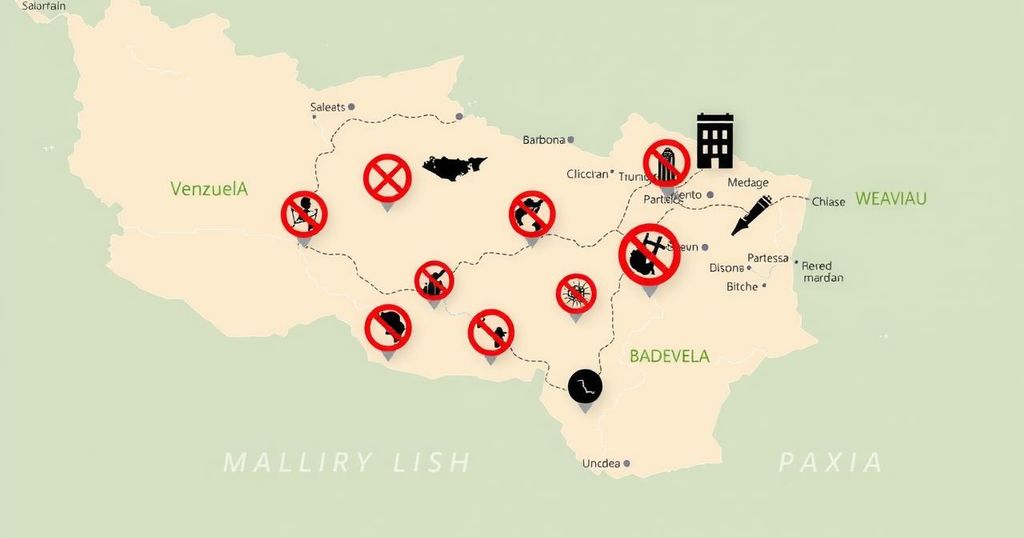The Trump administration is preparing to pressure more companies to halt operations in Venezuela after ordering Chevron to cease its activities. This would significantly impact Venezuela’s economy, which relies heavily on oil. Affected firms, including those from France and Spain, await guidance on their operational status, while Maduro attempts to downplay potential effects of these sanctions.
The Trump administration is reportedly poised to compel additional companies to cease operations in Venezuela, amplifying pressure on President Nicolás Maduro following the recent order to Chevron Corp. to wrap up its activities. Sources indicate that companies such as the French oil firm Etablissements Maurel & Prom SA, and an asphalt venture led by Florida oil magnate Harry Sargeant, will be given a 30-day ultimatum to end their operations after the US revokes their sanctions waivers.
This escalation is likely to negatively impact Venezuela’s already struggling economy, placing further strain on Maduro’s government amid Trump’s calls for democratic reforms and increased acceptance of Venezuelan migrants from the US. The US Treasury recently advised Chevron to finalize its operations in Venezuela by April 3, significantly shortening the typical six-month period for winding down activities.
Venezuela’s economy is significantly reliant on oil, with Chevron and other smaller entities permitted to operate there providing essential support as the state oil company suffers from severe underinvestment. Various advisors within the Trump administration hold differing perspectives on how to manage the situation in Venezuela, suggesting that a last-minute decision may allow certain oil companies to continue their operations.
Other international firms, including Spain’s Repsol SA and Italy’s Eni SpA, are also awaiting clarity on whether their operational waivers will be rescinded. Joint undertakings between Chevron and Petroleos de Venezuela SA have accounted for about a quarter of the Maduro administration’s total revenues for 2023 and 2024, indicating that the loss of Chevron could lead to a considerable contraction of the Venezuelan economy.
Rick Grenell, a Trump advisor, met with Maduro in January to reinitiate direct dialogues, resulting in the release of six US citizens and the resumption of deportation flights. Since this engagement, nearly 166 Venezuelan migrants have been sent back from the US, with the latest flight returning to Caracas on February 20. President Maduro, however, has attempted to minimize the potential consequences of Chevron’s withdrawal, asserting that the national output will remain unchanged.
In summary, the Trump administration’s potential move to order companies like Chevron to cease operations in Venezuela may serve to intensify pressure on President Maduro amidst ongoing economic struggles. The implications for the Venezuelan economy could be significant, leading to potential declines in revenue and economic activity. The situation remains fluid, with the possibility of adjustments based on internal discussions within the Trump administration and responses from affected companies.
Original Source: www.livemint.com




